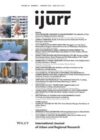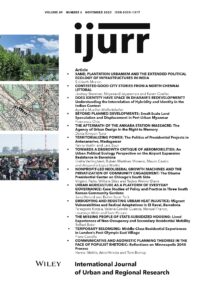This article discusses populist rhetoric in the context of participatory urban planning. Populist rhetoric builds on emotionally charged expression and juxtapositions between ‘the people’ and ‘the elite’ including planners. In so doing, it poses a challenge to planners who have learned to follow the ideals of communicative planning, highlighting public, rational problem-solving and orientation toward agreement. Recently, the agonistic theory of planning has put into question these ideals, advancing a view that disagreements, passion-driven resistance and populist rhetoric can advance democratic political culture, and by extension, planning culture. If populism can advance democracy in planning, should planners then reject the idea of countering populism with consensus-oriented communicative strategies and turn to agonistically oriented theory instead? What are the pros and cons of each theory in the face of populism? How do they help planners in identifying when populism serves democracy and when it works for anti-democratic goals? The article examines these questions, illustrating the discussion with reflections on populist public feedback and planners’ response to this feedback in the Minneapolis 2040 comprehensive planning process.
Details
Written by:
Hanna Mattila, Aino Hirvola, Tom Borrup
Digital Object Identifier (DOI)
https://doi.org/10.1111/1468-2427.13351
About DOI

